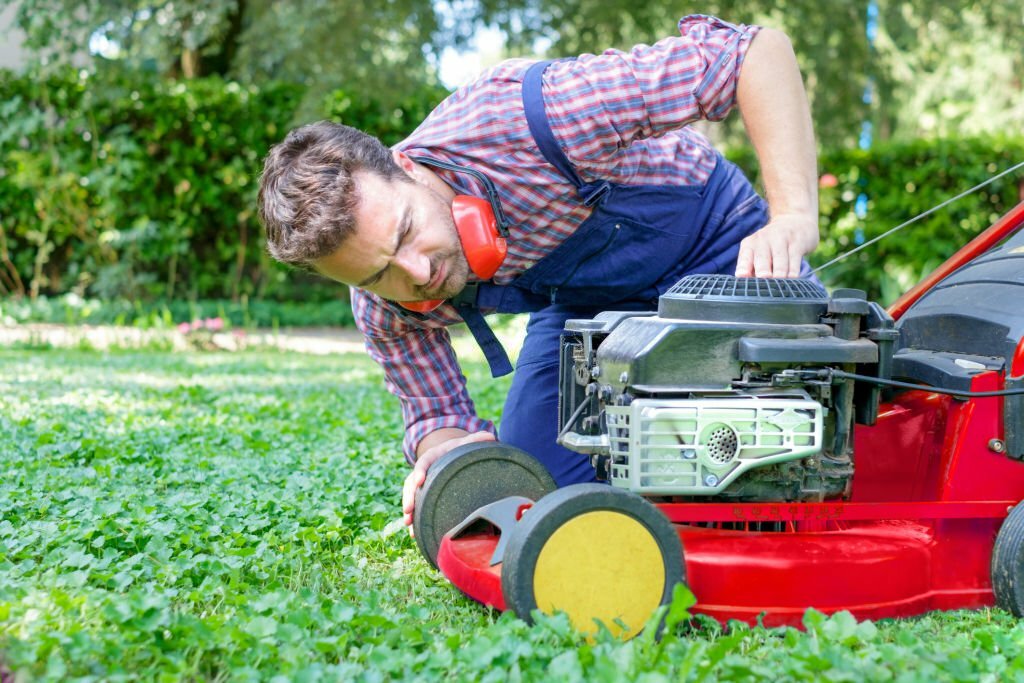
Is your lawn mower refusing to start? Or maybe it's stuttering, stalling, or struggling to do its job? Does it seem to have a mind of its own, leaving you pulling at your hair instead of those stubborn grass roots? If yes, then you're at the right place. This blog post will unravel the mystifying maze of lawn mower servicing, providing valuable insider knowledge on effective troubleshooting.
In today's guide, we won't merely address the common issues, but dive deeper into the root of these problems. Continuing to focus on accessible home improvement and empowerment, we take a look at how even a tool as seemingly simple as a lawn mower can require a nuanced understanding of its different parts, their individual roles, and the interconnectedness that yields a harmoniously working machine.
Perhaps your lawn mower is a persistent companion in your garden maintenance routine, or maybe it's awaiting its seasonal awakening from the garden shed. No matter the case, harnessing the power to diagnose and fix problems in your device will not only save you potential servicing costs but also the satisfaction of becoming more self-reliant.
Identifying the Problem
Before we rush to resolve an issue, it’s crucial to understand what exactly we're dealing with. Problems can range from the mower not starting to the blades not cutting grass properly or the engine overheating. Distinguishing the type of problem is essentially your first step to troubleshooting.
First, listen to the sound of your mower. Unusual noises often indicate issues like a damaged blade, a loose belt, or a failing motor. Second, pay attention to the mower's performance. Difficulty in starting, constant stalling, or slow operation might point to problems with your fuel system. Finally, don't disregard visible signs. Leaks, smoke, or a shaking machine can allude to more serious issues.
Understanding the Components
Understanding your lawn mower's components and how they work together is key to correct identification and resolution of its issues. The primary parts include the motor, the blades, the fuel system, and the air filter.
When focusing on the motor, regular upkeep is beneficial. A well-maintained motor ensures efficient operation. Similarly, the condition of your blades directly affects the quality of grass-cutting. Any issue with the fuel system might starve the mower of essential energy supply. Lastly, a clean air filter promotes combustion, while a clogged one can cause the mower to stall.
Tackling Common Issues
Once you're armed with knowledge about the mower’s components and their potential issues, you can tackle common problems. For instance, if your mower isn't starting, check the spark plug, fuel system, and air filter.
If your engine is running unevenly or stalling, the air filter, carburettor, and fuel filter might need attention. In case of smoking or leaking, look into the oil level and condition, and examine the carburettor and muffler.
The Pros and Cons of DIY Servicing
Handling lawn mower servicing at home can certainly have advantages. It saves money, builds self-reliance, and empowers you with useful knowledge.
However, be aware of potential drawbacks too. Misdiagnosing a problem or using incorrect solutions can worsen the issue. Moreover, complex problems could require professional attention, and improper handling might void your warranty.
When to Call a Professional
While many issues can be resolved at home, some problems may lie beyond the scope of DIY solutions. If your troubleshooting attempts don't yield results, the engine won't start or is smoking heavily, or if the mower operates noisily or vibrates excessively, it's likely time to call a professional.
Preventive Maintenance
Prevention, as they say, is better than cure. Clean your mower regularly, sharpen the blades, check and change the oil, inspect the spark plug, and replace the air filter as needed. This preventive care can ward off many potential problems, enhancing the mower’s longevity and performance.
Conclusion
Understanding your lawn mower, its key components, and common issues can empower you to handle most troubleshooting needs with confidence. The satisfaction of maintaining your own equipment, practical knowledge gained, and the cost savings certainly make it worth the effort.
However, awareness of your limitations is equally important. When faced with serious issues, it's wise to seek professional help. Also, investing in preventive maintenance can often minimize troubleshooting needs, promoting longer life and better performance for your lawn mower. Remember, a well-functioning mower is not just a tool - it’s your partner in maintaining a beautiful yard. Take good care of it!







0 comments:
Post a Comment